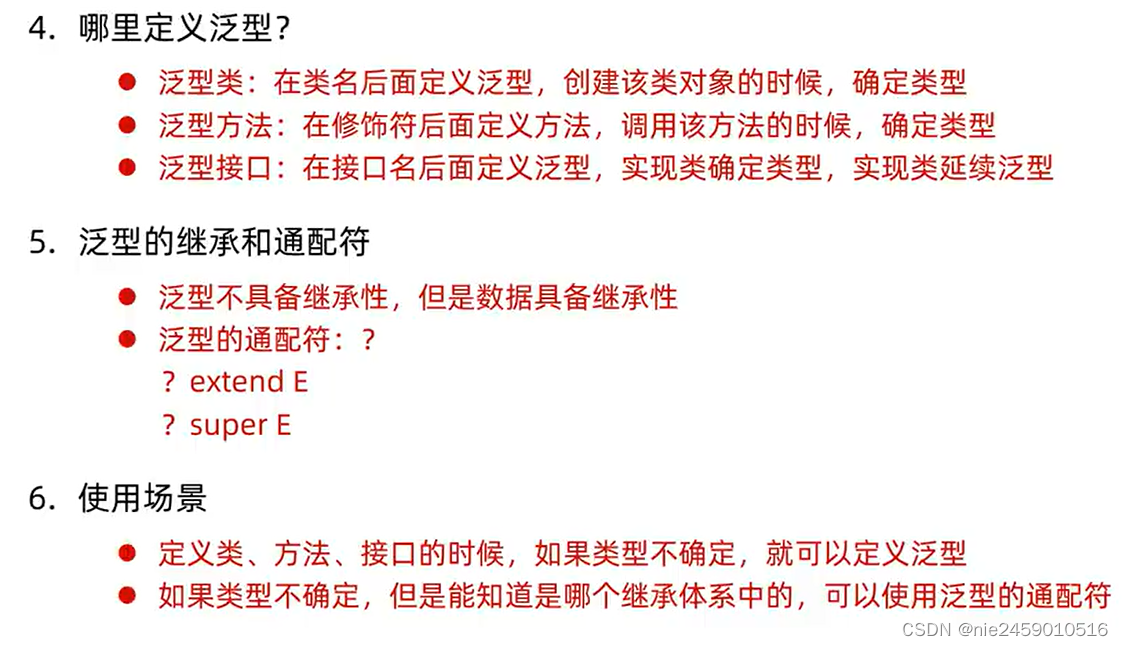当前示例源码github地址:
https://github.com/vilyLei/voxwebgpu/blob/feature/rendering/src/voxgpu/sample/GameOfLifeMultiMaterialPass.ts
系统特性:
1. 用户态与系统态隔离。
细节请见:引擎系统设计思路 - 用户态与系统态隔离-CSDN博客
2. 高频调用与低频调用隔离。
3. 面向用户的易用性封装。
4. 渲染数据(内外部相关资源)和渲染机制分离。
5. 用户操作和渲染系统调度并行机制。
6. 数据/语义驱动。
7. 异步并行的场景/模型载入。
8. computing与rendering用法机制一致性。
1). 构造过程一致性。
2). 启用过程一致性。
3). 自动兼容到material多pass以及material graph机制中。
当前示例运行效果:
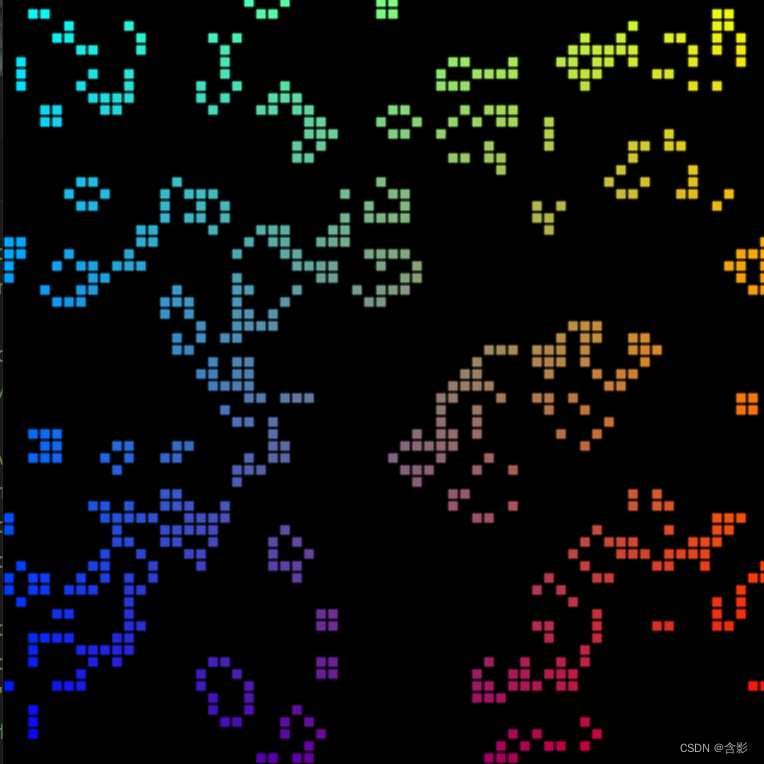
此示例基于此渲染系统实现,当前示例TypeScript源码如下:
const gridSize = 64;
const shdWorkGroupSize = 8;
const compShdCode = `
@group(0) @binding(0) var<uniform> grid: vec2f;
@group(0) @binding(1) var<storage> cellStateIn: array<u32>;
@group(0) @binding(2) var<storage, read_write> cellStateOut: array<u32>;
fn cellIndex(cell: vec2u) -> u32 {
return (cell.y % u32(grid.y)) * u32(grid.x) +
(cell.x % u32(grid.x));
}
fn cellActive(x: u32, y: u32) -> u32 {
return cellStateIn[cellIndex(vec2(x, y))];
}
@compute @workgroup_size(${shdWorkGroupSize}, ${shdWorkGroupSize})
fn compMain(@builtin(global_invocation_id) cell: vec3u) {
// Determine how many active neighbors this cell has.
let activeNeighbors = cellActive(cell.x+1, cell.y+1) +
cellActive(cell.x+1, cell.y) +
cellActive(cell.x+1, cell.y-1) +
cellActive(cell.x, cell.y-1) +
cellActive(cell.x-1, cell.y-1) +
cellActive(cell.x-1, cell.y) +
cellActive(cell.x-1, cell.y+1) +
cellActive(cell.x, cell.y+1);
let i = cellIndex(cell.xy);
// Conway's game of life rules:
switch activeNeighbors {
case 2: { // Active cells with 2 neighbors stay active.
cellStateOut[i] = cellStateIn[i];
}
case 3: { // Cells with 3 neighbors become or stay active.
cellStateOut[i] = 1;
}
default: { // Cells with < 2 or > 3 neighbors become inactive.
cellStateOut[i] = 0;
}
}
}`;
export class GameOfLifeMultiMaterialPass {
private mRscene = new RendererScene();
initialize(): void {
console.log("GameOfLifeMultiMaterialPass::initialize() ...");
const rc = this.mRscene;
rc.initialize();
this.initScene();
}
private createUniformValues(): { ufvs0: WGRUniformValue[]; ufvs1: WGRUniformValue[] }[] {
const gridsSizesArray = new Float32Array([gridSize, gridSize]);
const cellStateArray0 = new Uint32Array(gridSize * gridSize);
for (let i = 0; i < cellStateArray0.length; i++) {
cellStateArray0[i] = Math.random() > 0.6 ? 1 : 0;
}
const cellStateArray1 = new Uint32Array(gridSize * gridSize);
for (let i = 0; i < cellStateArray1.length; i++) {
cellStateArray1[i] = i % 2;
}
let shared = true;
let sharedData0 = { data: cellStateArray0 };
let sharedData1 = { data: cellStateArray1 };
const v0 = new WGRUniformValue({ data: gridsSizesArray, stride: 2, shared });
v0.toVisibleAll();
// build rendering uniforms
const va1 = new WGRStorageValue({ sharedData: sharedData0, stride: 1, shared }).toVisibleVertComp();
const vb1 = new WGRStorageValue({ sharedData: sharedData1, stride: 1, shared }).toVisibleVertComp();
// build computing uniforms
const compva1 = new WGRStorageValue({ sharedData: sharedData0, stride: 1, shared }).toVisibleVertComp();
const compva2 = new WGRStorageValue({ sharedData: sharedData1, stride: 1, shared }).toVisibleComp();
compva2.toBufferForStorage();
const compvb1 = new WGRStorageValue({ sharedData: sharedData1, stride: 1, shared }).toVisibleVertComp();
const compvb2 = new WGRStorageValue({ sharedData: sharedData0, stride: 1, shared }).toVisibleComp();
compvb2.toBufferForStorage();
return [
{ ufvs0: [v0, va1], ufvs1: [v0, vb1] },
{ ufvs0: [v0, compva1, compva2], ufvs1: [v0, compvb1, compvb2] }
];
}
private mEntity: FixScreenPlaneEntity;
private mStep = 0;
private createMaterial(shaderCodeSrc: WGRShderSrcType, uniformValues: WGRUniformValue[], shadinguuid: string, instanceCount: number): WGMaterial {
return new WGMaterial({
shadinguuid,
shaderCodeSrc,
instanceCount,
uniformValues
});
}
private createCompMaterial(shaderCodeSrc: WGRShderSrcType, uniformValues: WGRUniformValue[], shadinguuid: string, workgroupCount = 2): WGCompMaterial {
return new WGCompMaterial({
shadinguuid,
shaderCodeSrc,
uniformValues
}).setWorkcounts(workgroupCount, workgroupCount);
}
private initScene(): void {
const rc = this.mRscene;
const ufvsObjs = this.createUniformValues();
const instanceCount = gridSize * gridSize;
const workgroupCount = Math.ceil(gridSize / shdWorkGroupSize);
let shaderSrc = {
shaderSrc: {
code: shaderWGSL,
uuid: "shader-gameOfLife",
vertEntryPoint: "vertMain",
fragEntryPoint: "fragMain"
}
} as WGRShderSrcType;
let compShaderSrc = {
compShaderSrc: {
code: compShdCode,
uuid: "shader-computing",
compEntryPoint: "compMain"
}
};
const materials: WGMaterial[] = [
// build ping-pong rendering process
this.createMaterial(shaderSrc, ufvsObjs[0].ufvs0, "rshd0", instanceCount),
this.createMaterial(shaderSrc, ufvsObjs[0].ufvs1, "rshd1", instanceCount),
// build ping-pong computing process
this.createCompMaterial(compShaderSrc, ufvsObjs[1].ufvs1, "compshd0", workgroupCount),
this.createCompMaterial(compShaderSrc, ufvsObjs[1].ufvs0, "compshd1", workgroupCount),
];
let entity = new FixScreenPlaneEntity({
x: -0.8, y: -0.8, width: 1.6, height: 1.6,
materials
});
rc.addEntity(entity);
materials[0].visible = false;
materials[2].visible = false;
this.mEntity = entity;
}
private mFrameDelay = 3;
run(): void {
let rendering = this.mEntity.isRendering();
if (rendering) {
if (this.mFrameDelay > 0) {
this.mFrameDelay--;
return;
}
this.mFrameDelay = 3;
const ms = this.mEntity.materials;
for (let i = 0; i < ms.length; i++) {
ms[i].visible = (this.mStep % 2 + i) % 2 == 0;
}
this.mStep++;
}
this.mRscene.run(rendering);
}
}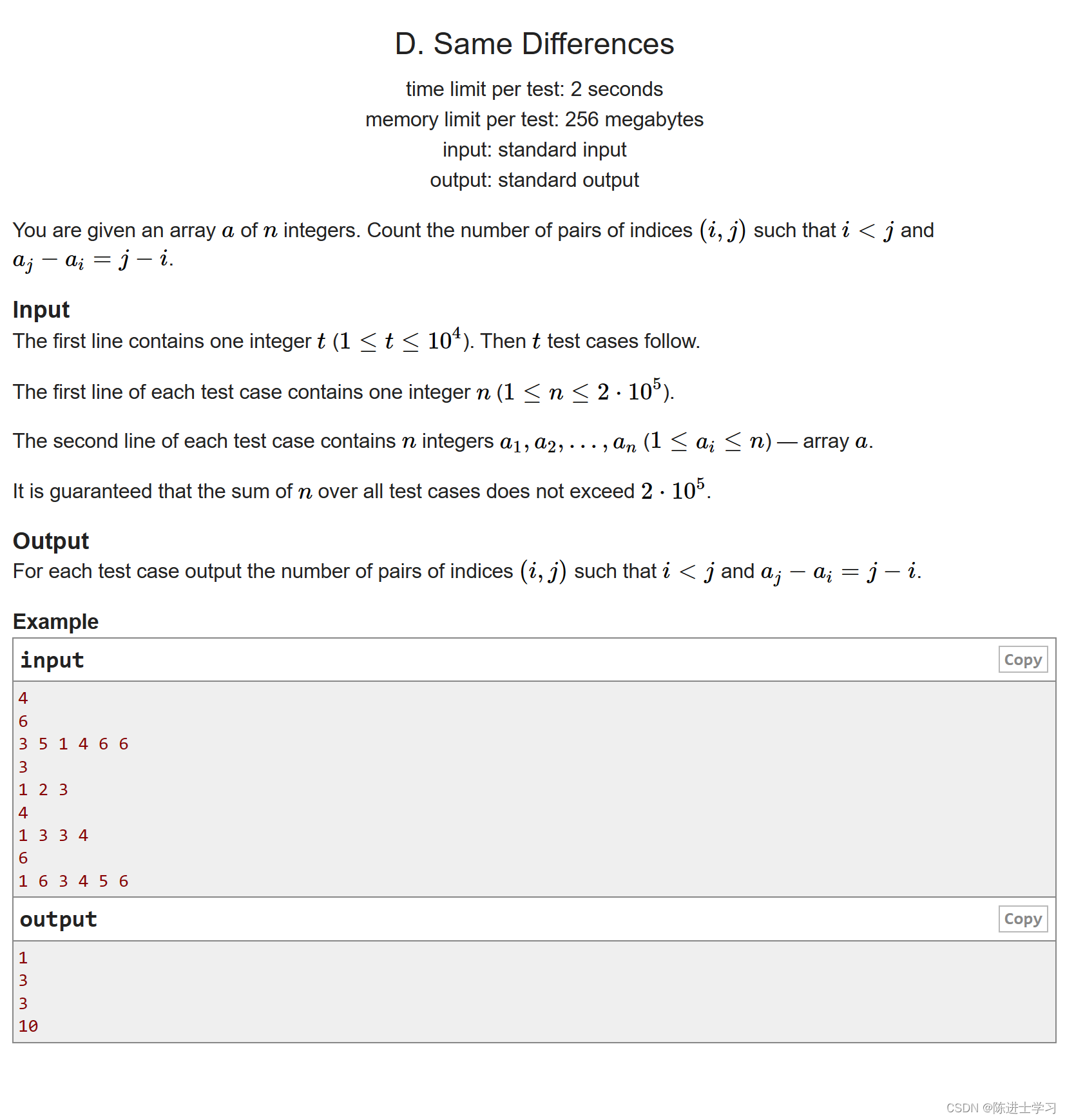



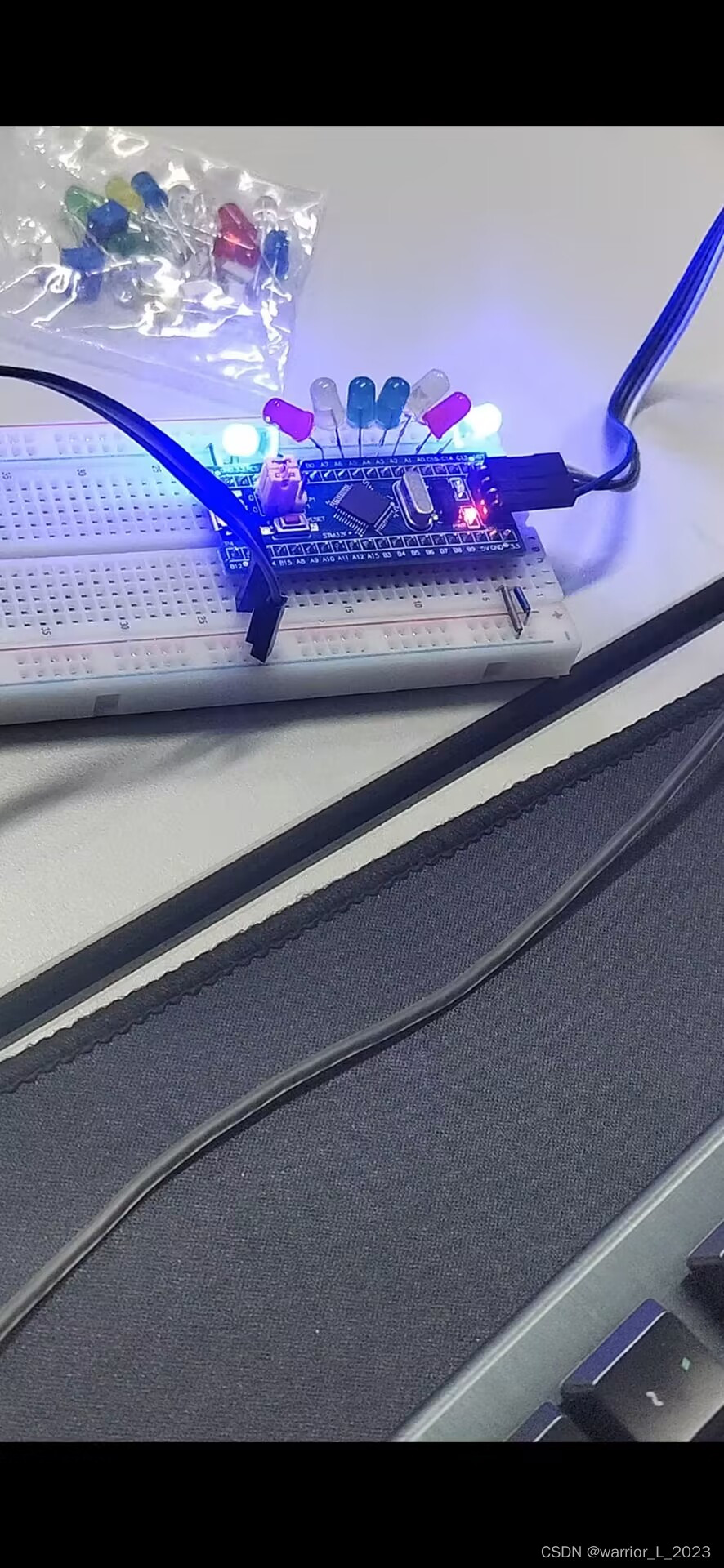
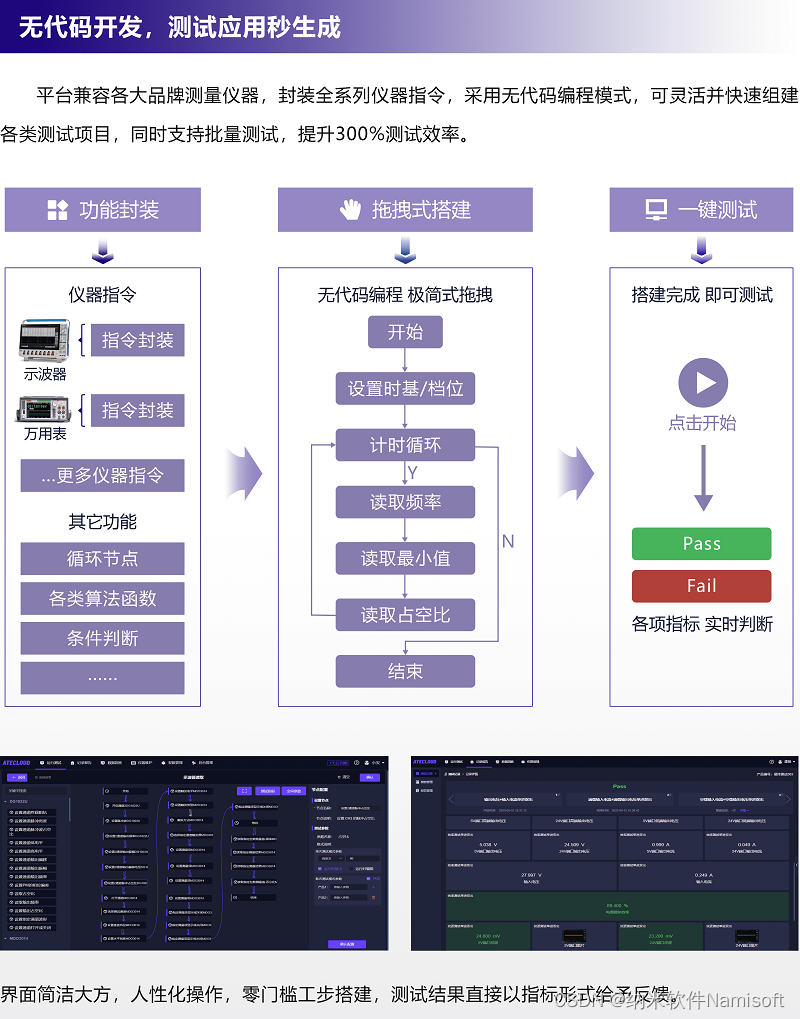
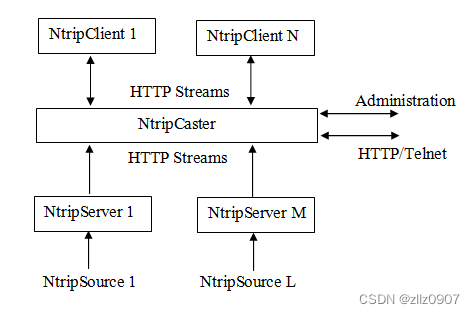





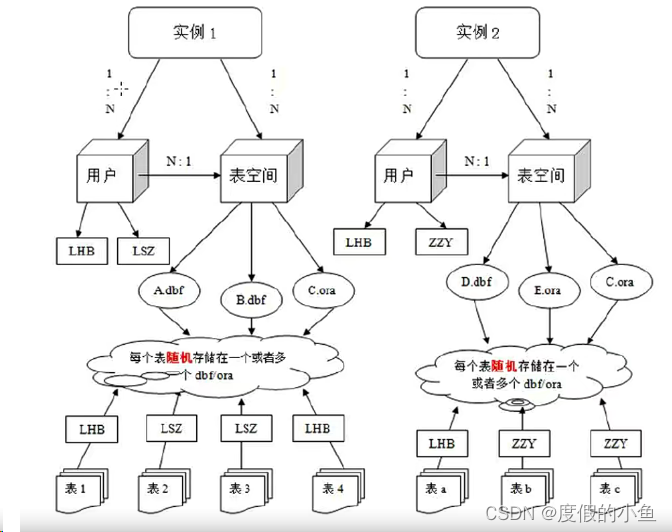

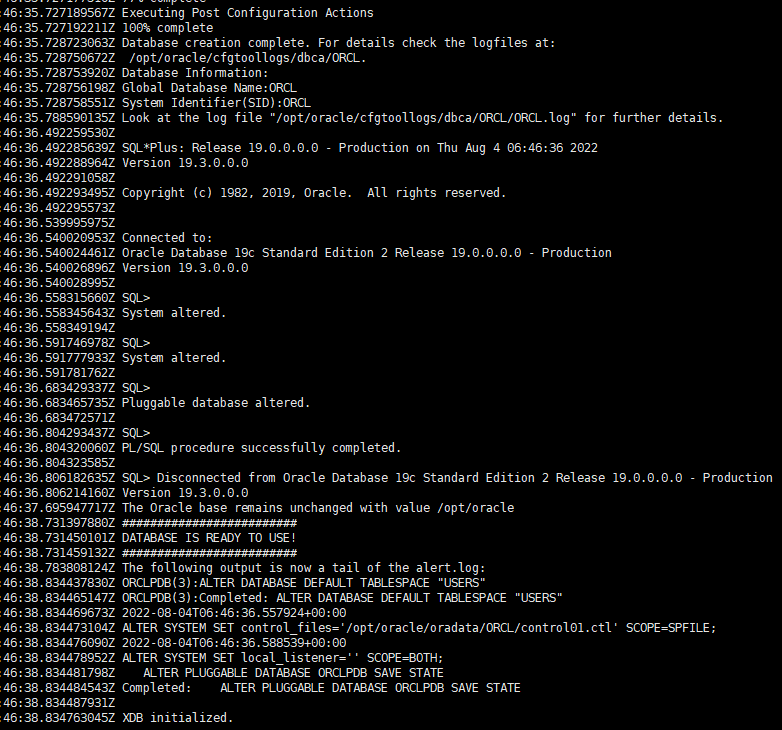
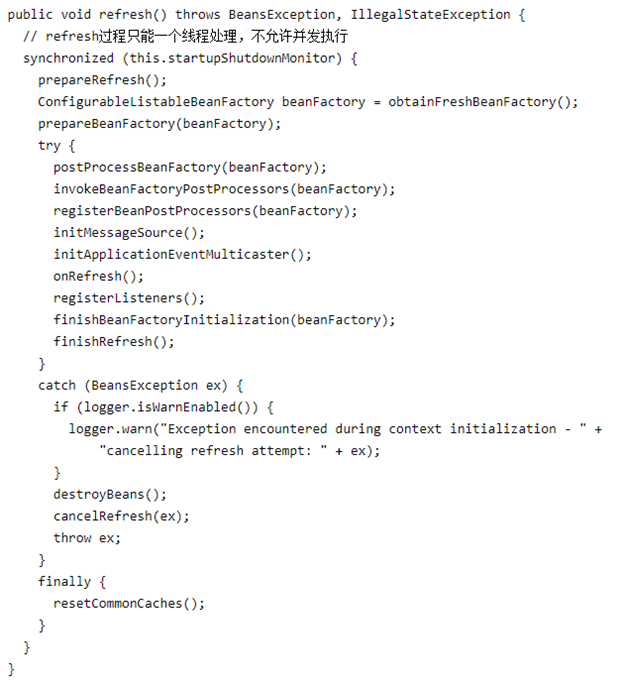
![[AndroidStudio]_[初级]_[修改虚拟设备镜像文件的存放位置]](https://img-blog.csdnimg.cn/04cebe41940c400ebae57bcfd902240a.png)


